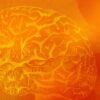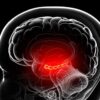A hormonal imbalance is prevalent among women across various age groups—and it can cause detrimental effects on one’s physical, mental, and emotional health. 47 percent of women between the ages of 30 and 60 experience symptoms of hormonal imbalance, according to a survey conducted by OnePoll and Dr. Anna Cabeca. Alarmingly, the poll also revealed that a significant percentage of women were still unaware of the various symptoms of hormonal imbalance.
So if you think that you’re experiencing hormonal imbalances, here are all the signs, causes, and treatments that you need to be aware of.
Signs of Hormonal Imbalances in Adult Women
- Irregular Periods: Dr. Andrea Bonny states that you should get yourself checked if you experience alarming menstrual patterns, such as period intervals that are shorter than 21 days or longer than 45 days. These irregular menstrual cycles are often caused by polycystic ovarian syndrome (PCOS), which is the most common endocrine problem for women who are of reproductive age. However, it can also be caused by thyroid problems, which can affect your thyroid gland’s ability to produce hormones.
- Changes in Weight: Most women experience weight gain due to hormonal imbalances. This is typically caused by the reduced levels of thyroid hormones, increased levels of stress hormones, or even PCOS. However, you may also experience sudden weight loss, especially if you have thyroid problems.
- Body Pain: You may also experience aches and pains in different parts of your body, due to a hormonal imbalance. For instance, migraines are very common among women because it is affected by the production of estrogen in the different reproductive stages. In fact, it is estimated that about half of women get migraine headaches during the perimenopausal stage, as a result of changes in their estrogen levels. However, others may also experience muscle aches and joint pains.
- Adult Acne: Dermatologists Dr. Katie Rodan and Dr. Kathy Fields pointed out that, just like teenage acne, adult acne is caused by hormones that stimulate excess oil production. However, they stated that the difference between teenage acne and adult acne is that the latter can persist for decades! The dermatologists also emphasized that mature skin is more compromised, which is why you’ll need a more intensive skincare routine to treat adult acne.
- Mood Fluctuations: People often underestimate or mock mood swings whenever women are experiencing menopause or their period. However, hormonal imbalances can cause serious effects on your mood, making you feel more nervous, anxious, and irritable than normal. Other types of hormonal imbalances, like PCOS, are even linked to serious illnesses, such as depression and anxiety.
The Common Causes of Hormonal Imbalance
Everyone may experience hormonal imbalances, but women may experience this due to certain reproductive stages and even because of illnesses and personal events. Here are all the common causes that may affect your hormones:
- PCOS
- Pregnancy
- Menopause
- Diabetes
- Thyroid diseases
- Tumors or cancer
- Certain medications and therapies
- Stress
How to Treat Hormonal Imbalance
Since hormonal imbalances can be influenced by numerous factors, you need to consider treatments that can target its main cause in your case. For instance, you can undergo estrogen therapy to combat the negative effects of menopause, while hormonal birth control can help with PCOS.
But Jaclyn Tolentino, a holistic family physician, emphasizes that you can also regulate your hormones by taking care of your entire body. She states that one of the most effective practices that you can do is stress management, since chronic stress can affect your hormone production. You can lower your stress by exercising regularly, doing mindful practices, and decreasing your screen time. Dr. Tolentino also suggests that you eat hormone-supportive food, such as broccoli, cauliflower, and kimchi.
Hormonal imbalance can cause serious symptoms that can affect your quality of life, with studies also showing that it is linked to a person’s cognitive function. This is why once you notice the warning signs of hormonal imbalance, it’s important to identify its cause and treat it accordingly.


